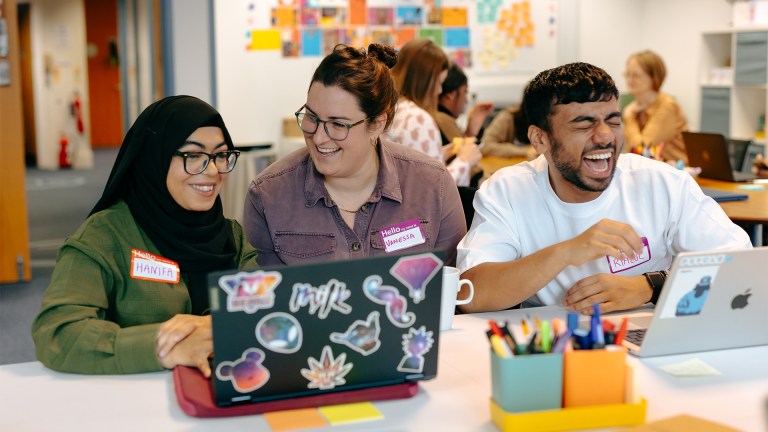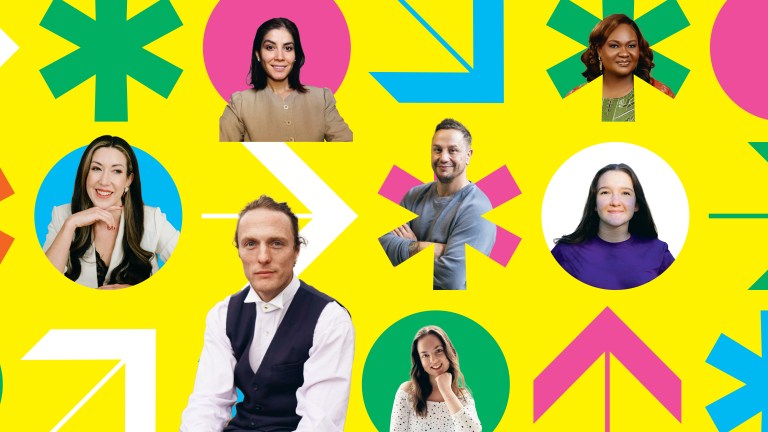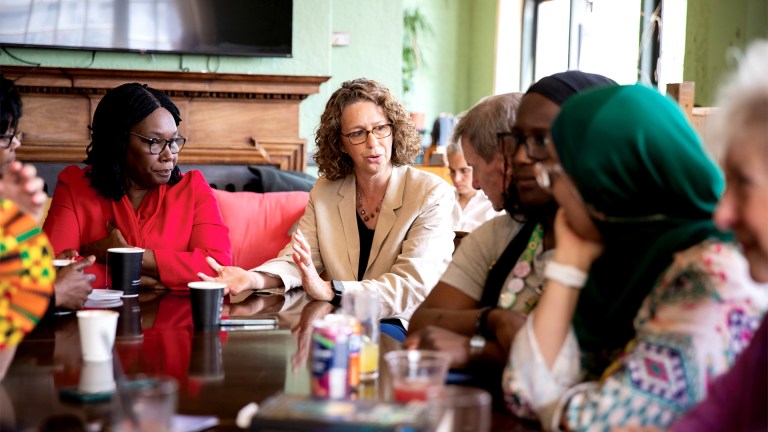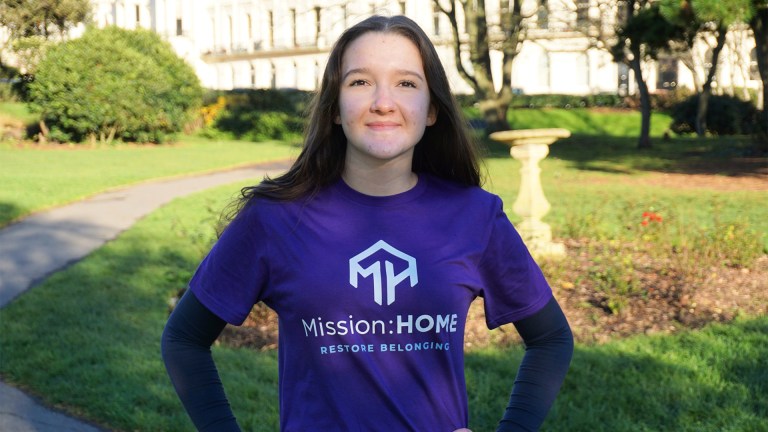Social enterprises can be big or small – from coffee shops and cinemas, to pubs and leisure centres, banks and bus companies. They can offer socks to homeless people for every sock bought in their shop like Jollies Socks. Or create innovative products that help disabled people and promote social inclusion using the proceeds from the sale of bags like Trabasack. Or making jewellery can also help people with anxiety be welcomed back into the community, just as the creators of Haringey-based Studio 306 do.
What is an example of a social enterprise?
Social enterprises can be magazine publishers too – like The Big Issue. We are one of the oldest and biggest social enterprises in the UK.
All the profits made by the Big Issue Group are reinvested back into helping vendors with a ‘hand up, not a hand out’. Like many social enterprises, we tackle social problems, improve people’s life chances and support communities across the country, whether through social investment with Big Issue Invest, or through Big Issue Recruit, Big Issue Group’s specialist recruitment service.
As Big Issue founder John Bird said: “Making pictures frames with a social echo – you get what you want while giving somebody in need support – is as I said quintessentially what my work is about. Create a trail of good behind you.”
The UK’s social enterprises have diverse missions. Madlug, a luggage company founded in 2015, uses funds from bags it sells to provide free bags for children in care.
Change Please sells coffee, but uses its profits to support homeless people by offering them jobs, housing, and training.
How many social enterprises are there in the UK?
Social Enterprise UK (SEUK) looks after the biggest network of social enterprises in the UK and counts stars like Michael Sheen among its fans.
The body represents 131,000 social enterprises in the UK with an estimated collective turnover of £78bn and a workforce of 2.3 million people.
A total of 84% of social enterprises said they were a Living Wage employer while 22% of social enterprises operate in the most deprived areas of the UK, compared to 14% of wider businesses.
Who runs and works for social enterprises?
As companies, social enterprises tend to be younger and more diverse than big businesses.
A third of social enterprises are under three years old while 58% of social enterprises are led by leadership teams with at least half their members identifying as female.
Compared to other companies, social enterprises are more likely to have directors from non-white ethnic backgrounds, too. Around 43% of social enterprises have at least one leader from Black, Asian or ethnic minority backgrounds.
Do you have a story to tell or opinions to share about this? Get in touch and tell us more. Big Issue exists to give homeless and marginalised people the opportunity to earn an income. To support our work buy a copy of the magazine or get the app from the App Store or Google Play.









